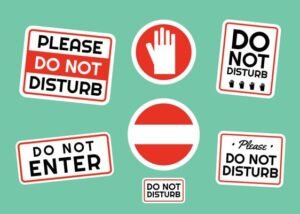The Basics of Private Law – How to Live in the Private
While written from an American point of view, what follows will apply to most “common law” countries worldwide. This post aims to give you a simple, high-level understanding of private law and what it means to live in the private. Much detail will be left out to minimize confusion.
Please read The Basics of How the Law System Works before reading this post.
Contents
Life
 Your life, body, mind, soul, and spirit are a miraculous and unique expression of creation and as such you are inherently sovereign, having no earthly authority above you including other men or women or fictions such as governments or corporations. This fundamental recognition is reflected in the American Declaration of Independence;
Your life, body, mind, soul, and spirit are a miraculous and unique expression of creation and as such you are inherently sovereign, having no earthly authority above you including other men or women or fictions such as governments or corporations. This fundamental recognition is reflected in the American Declaration of Independence;
We hold these truths to be self-evident, that all men are created equal, that they are endowed by their Creator with certain unalienable Rights, that among these are Life, Liberty and the pursuit of Happiness. – American Declaration of Independence
By your existence, you are the “I am”, the living will of your own life and co-creator with creation itself. In the purest state, you owe nothing to mankind or government just as they have no obligation to you.
It is only through your own will and volition that you bind yourself to others of life or fiction.
Private Law
 Private law or the “law of I” is the set of rules a sovereign man or woman establishes to govern their own lives, affairs, and property. The ability to set your law follows from being born with free will; the ability to choose.
Private law or the “law of I” is the set of rules a sovereign man or woman establishes to govern their own lives, affairs, and property. The ability to set your law follows from being born with free will; the ability to choose.
In law, the words man or woman denotes a sovereign, sentient, living being as opposed to an inferior titled legal fiction found attached to governments and corporations. The words man or woman are among the few that are beyond the corruptible nature of the legal society.
Whatever agreements, explicit or implicit, written or verbal you voluntarily enjoin yourself with, define the extent of your private law and the shape of your private life. Agreements can be with others of mankind, governments, or corporations. By your hand will you determine the degree of freedom or slavery you will find sufferable.
Private Life
 To live in the private requires serving two great objectives; to first know thyself and second to know how to assert your law to protect your rights and establish acceptable boundaries between the private and the public.
To live in the private requires serving two great objectives; to first know thyself and second to know how to assert your law to protect your rights and establish acceptable boundaries between the private and the public.
While fully coming to know yourself is beyond the scope of this post, in brief, it involves coming to peace in your mind, spirit, and soul. To resolve all inner conflicts, and past traumas and to embrace and face your fears to return to the humble yet fully directed state from which you first came.
And the end of all our exploring
Will be to arrive where we started
And know the place for the first time
—T.S. Eliot, from “Little Gidding,” Four Quartets (Gardners Books; Main edition, April 30, 2001) Originally published 1943.”
This state reflects a kind of karmic balance of the soul allowing for the best possible realities to emerge into this world as co-creative beings that we are.
To express your law and assert your rights from the private requires a certain understanding of the public (government and corporations) and its boundaries as well as a set of lawful methods taught in the Knowledge Share course associated with this website.
Expressing your law amid a controversy is best served when you do so from a place of love for those of mankind (your brothers and sisters) and only for a want of restoring karmic balance (justice) and finding remedy (redemption).
Public-Private Balance
![]() In the context of societies, the only boundaries to the sovereignty of one man or woman are where such powers may conflict with the authority of another sovereign man or woman and cause controversy.
In the context of societies, the only boundaries to the sovereignty of one man or woman are where such powers may conflict with the authority of another sovereign man or woman and cause controversy.
Where governments are concerned, most notably in America and evidenced in the various quotes below, they are creations (fictions) of and by the people and by design, servants to the people both individually and collectively.
“In free governments the rulers are the servants and the people their superiors and sovereigns.” The ultimate powers in a society, therefore, rest in the people themselves, and they should exercise those powers, either directly or through representatives, in every way they are competent and that is practicable. — Benjamin Franklin
“[The people] are in truth the only legitimate proprietors of the soil and government.” –Thomas Jefferson to Pierre Samuel Dupont de Nemours, 1813. ME 19:197
“[It is] the people, to whom all authority belongs.” –Thomas Jefferson to Spencer Roane, 1821. ME 15:328
“The constitutions of most of our States assert that all power is inherent in the people; that they may exercise it by themselves in all cases to which they think themselves competent (as in electing their functionaries executive and legislative, and deciding by a jury of themselves in all judiciary cases in which any fact is involved), or they may act by representatives, freely and equally chosen; that it is their right and duty to be at all times armed; that they are entitled to freedom of person, freedom of religion, freedom of property, and freedom of the press.” –Thomas Jefferson to John Cartwright, 1824. ME 16:45
Absent willful contracts, taking on titles, or silent consent with governments or corporations (legal fictions/the dead) your private law (substance/the living) actively asserted will have priority.
Conclusion
Private law and living in the private entails understanding who you are within and without. By knowing who you are in relation to creation and in relation to others of mankind and the world of legal fictions (governments and corporations) you will have the opportunity to assert your law to establish a proper balance.
